A bloated stomach is a clinical manifestation arising from excessive accumulation in the intestine. A definitive method to ascertain the optimal air content in the digestive system is unavailable. The specialists base the diagnosis of a bloated stomach on subjective observations by the patient.
The physiological volume of gas in the intestine should not surpass 200 ml, and specialists acknowledged this value as the norm for an adult. Moreover, an individual can physiologically release up to 600 ml of gases within 24 hours.

Some symptoms![]() that may occur when you experience a bloated stomach
that may occur when you experience a bloated stomach![]() and gas are listed above. However, it is worth mentioning them and indicating what you should pay attention to. A bloated, hard stomach is the main feeling that may be accompanied by:
and gas are listed above. However, it is worth mentioning them and indicating what you should pay attention to. A bloated, hard stomach is the main feeling that may be accompanied by:
However, some symptoms should cause concern, especially in the case of long-term flatulence. A visit to the doctor's office![]() is necessary when you experience:
is necessary when you experience:
A bloated stomach is a condition characterized by a feeling of distention or fullness in the abdominal cavity. A sensation of pressure, excessive gas, or an increase in the circumference of the abdominal cavity may also accompany it.
This condition is highly subjective, as patients may describe or experience it differently. In most cases, a bloated stomach is due to an imbalance between the production and elimination of gases. While the process is natural, homeostasis can be disrupted.
As a result, one may experience an enlargement of the abdominal circumference, difficulty retracting it, and a feeling of heaviness. In addition, there may be an increased frequency of belching or the excretion of malodorous gases. These symptoms may worsen throughout the day and be particularly bothersome in the evening.
A bloated stomach may appear after a heavy meal and is the most common cause![]() of this condition. However, it is not the only one.
of this condition. However, it is not the only one.
Many of these causes have their source in incorrect eating habits, e.g., eating meals quickly, drinking large amounts of carbonated drinks, smoking cigarettes, and a lack of knowledge of one's body and its limitations. It may also be caused by digestive system disease or stress.
The female menstrual cycle![]() impacts the digestive system, whereby it undergoes significant changes in the phases leading up to and during menstruation. These changes occur due to a marked increase in the levels of estrogen. This hormone plays a crucial role in the growth of the uterine mucosa and its preparation for embryonic implantation.
impacts the digestive system, whereby it undergoes significant changes in the phases leading up to and during menstruation. These changes occur due to a marked increase in the levels of estrogen. This hormone plays a crucial role in the growth of the uterine mucosa and its preparation for embryonic implantation.
While these alterations are characteristic of persons with uteruses, there may be instances where the body reacts differently to the usual process, leading to the bloated stomach manifestation. This symptom, therefore, serves as a potential indicator of such anomalous events.
Changing hormone levels during the menstrual cycle in women significantly affects the functioning of the digestive system. Estrogen and progesterone should be taken into account especially.
In the last phases of the cycle, including ovulation, i.e., the fertile days![]() , progesterone levels increase. In addition to its functions in the reproductive system, this hormone also introduces changes in the digestive system. It is responsible for relaxing the smooth muscles in the intestines, which slows down their peristalsis. As your metabolism slows down, you may feel bloated.
, progesterone levels increase. In addition to its functions in the reproductive system, this hormone also introduces changes in the digestive system. It is responsible for relaxing the smooth muscles in the intestines, which slows down their peristalsis. As your metabolism slows down, you may feel bloated.
A bloated stomach during pregnancy![]() is quite common. It is caused by progesterone, a hormone responsible for embryo implantation in the uterine wall and maintaining the developing pregnancy. It affects many physiological processes in the human body.
is quite common. It is caused by progesterone, a hormone responsible for embryo implantation in the uterine wall and maintaining the developing pregnancy. It affects many physiological processes in the human body.
It causes the human body to retain water and widen the veins. Unfortunately, progesterone's effects are slowing digestion and intestinal peristalsis. It has a specific purpose. Slower digestion is intended to ensure better nutrition for the developing baby. At the same time, however, it also causes swelling, constipation, varicose veins, and difficulties in expelling gases accumulated in the intestines, i.e., flatulence.

It is pertinent to note that ailments related to menopause![]() are characterized by significant hormonal fluctuations. During the onset of the premenopausal phase, there is a rapid and frequent change in the concentration and level of estrogen and progesterone hormones, which is further associated with irregular periods. Consequently, there may be instances where bloating occurs in the abdominal region, particularly just before menstruation, even if the body has not previously exhibited such symptoms.
are characterized by significant hormonal fluctuations. During the onset of the premenopausal phase, there is a rapid and frequent change in the concentration and level of estrogen and progesterone hormones, which is further associated with irregular periods. Consequently, there may be instances where bloating occurs in the abdominal region, particularly just before menstruation, even if the body has not previously exhibited such symptoms.
A bloated stomach is a characteristic symptom of celiac disease![]() , which is a chronic autoimmune disorder that results in damage to the small intestine due to the consumption of gluten. The onset of the disease may take a long time before manifesting any clinical symptoms, which can often lead to misdiagnosis and confusion with other conditions.
, which is a chronic autoimmune disorder that results in damage to the small intestine due to the consumption of gluten. The onset of the disease may take a long time before manifesting any clinical symptoms, which can often lead to misdiagnosis and confusion with other conditions.
Accurate diagnosis of celiac disease can be challenging and complex. Therefore, individuals who frequently experience bloating should seek medical attention. If celiac disease is suspected based on the patient's medical history, the physician will order appropriate tests to confirm the diagnosis.
Celiac disease is a severe condition that should not be taken lightly. Gluten consumption gradually damages the small intestine's mucosal lining, impairing nutrient absorption and malnutrition. Thus, a persistent bloated stomach is an indication to begin diagnosing celiac disease. The specialists base the diagnosis on laboratory tests, including genetic tests, stool tests for occult blood, and microbiological tests of stools. Specialists recommend doing blood tests to evaluate the pancreas's functionality.
A bloated stomach is one of the symptoms of food intolerance![]() , i.e., hypersensitivity to certain foods. If bloating results from intolerance, it is often the result of IgG antibodies.
, i.e., hypersensitivity to certain foods. If bloating results from intolerance, it is often the result of IgG antibodies.
The list of symptoms is very long. IgG-related intolerances most often cause symptoms approximately 24 hours after consuming the products that cause intolerance. These symptoms usually last for several days, and if the intolerable ingredient is consumed regularly, the symptoms become chronic and do not go away.
It makes it very difficult to pinpoint the cause because it is impossible to perform a reliable blood test, which in theory is the most effective tool in diagnosing food intolerances and the causes of bloated stomach.
Small intestinal bacterial overgrowth![]() (SIBO) is characterized by the growth of aerobic and anaerobic bacteria in the small intestine, leading to bacterial balance disturbance and a range of intestinal and stomach symptoms. The small intestine typically has low bacterial counts due to the presence of stomach acid, bile, and pancreatic enzymes. Proper intestinal function and the ileocecal valve's operation, which prevents the large intestine's contents from returning to the small intestine, are also essential in maintaining the small intestine's low bacterial population. SIBO develops when any of these protective mechanisms fail.
(SIBO) is characterized by the growth of aerobic and anaerobic bacteria in the small intestine, leading to bacterial balance disturbance and a range of intestinal and stomach symptoms. The small intestine typically has low bacterial counts due to the presence of stomach acid, bile, and pancreatic enzymes. Proper intestinal function and the ileocecal valve's operation, which prevents the large intestine's contents from returning to the small intestine, are also essential in maintaining the small intestine's low bacterial population. SIBO develops when any of these protective mechanisms fail.
Diagnosing SIBO is challenging, even when its symptoms are present. The excessive bacteria population in the intestines triggers carbohydrate fermentation in the small intestine, which disrupts normal bowel function, producing excess gas and discomfort.
Left untreated, SIBO can lead to weight loss or megaloblastic anemia due to nutrient absorption issues, leading to malnutrition. Given the similarity of SIBO symptoms with other digestive disorders, it is vital to consult a medical professional to ensure accurate diagnosis and appropriate treatment.
A bloated stomach after meals![]() is a common symptom that may result from a diet high in hard-to-digest foods. Meals fried or containing fatty proteins can slow digestion and contribute to a bloated stomach. In addition, consuming hard-to-soluble carbohydrates, such as legumes and cruciferous vegetables, can exacerbate bloating. Excessive intake of sweets or sugar can also lead to bloating due to increased gas production. It is important to maintain a light and high-fiber diet to reduce the likelihood of experiencing abdominal bloating after meals.
is a common symptom that may result from a diet high in hard-to-digest foods. Meals fried or containing fatty proteins can slow digestion and contribute to a bloated stomach. In addition, consuming hard-to-soluble carbohydrates, such as legumes and cruciferous vegetables, can exacerbate bloating. Excessive intake of sweets or sugar can also lead to bloating due to increased gas production. It is important to maintain a light and high-fiber diet to reduce the likelihood of experiencing abdominal bloating after meals.

However, there are situations when it is difficult to find the cause of digestive problems. A constantly bloated stomach![]() may be caused by digestive system diseases, such as:
may be caused by digestive system diseases, such as:
Irritable bowel syndrome![]() causes a constantly bloated abdomen, which may be accompanied by abdominal pain, diarrhea, or constipation. Symptoms such as nausea, lethargy, fatigue, or headaches also signal that the problem may be more serious. It is best to see a doctor immediately for symptoms because the cause of this disease is unconfirmed.
causes a constantly bloated abdomen, which may be accompanied by abdominal pain, diarrhea, or constipation. Symptoms such as nausea, lethargy, fatigue, or headaches also signal that the problem may be more serious. It is best to see a doctor immediately for symptoms because the cause of this disease is unconfirmed.
Sometimes, it depends on stress, and other times on abnormal motor and sensory functions of the intestines. For this reason, it is advisable to consult a doctor and go for check-ups if your stomach is bloated for a long time.
Certain situations and factors may contribute to the occurrence of too much gas in the intestines. Most often, the amount of gases produced in the intestines does not increase, but in some people, even a slight increase in the volume of gases causes annoying symptoms and discomfort.
However, certain situations can increase the volume of gas in the intestines.
Individuals frequently unconsciously swallow air while eating, and this behavior may be linked to stressful and emotionally charged situations. The most commonly employed treatment approach involves therapy, focused on decreasing anxiety and implementing coping strategies to mitigate stress if it is the underlying cause of this behavior. Additionally, individuals should be observant of their eating pace to minimize the amount of air ingested and avoid carbonated beverages, chewing gum, and smoking, all of which can lead to increased air ingestion.
Certain foods contain fermentable oligo-, di-, and monosaccharides and polyols (FODMAPs), a carbohydrate poorly absorbed by the human body, resulting in increased flatulence and gas production in some individuals.
The diagnosis of a bloated stomach is based on a medical history. The patient talks about his above-mentioned symptoms. To properly diagnose flatulence, the doctor performs a physical examination, stool examination for occult blood, and other additional tests. The tests include:
In the diagnosis, in addition to the test results, other ailments with similar symptoms (e.g., pain in the hypochondrium or a large amount of gas) must be considered. They may indicate diseases of the kidneys, spleen, large intestine, or gallbladder.
The treatment![]() of chronic bloated stomach can be categorized into causal and symptomatic treatment. Causal treatment depends on the underlying cause of flatulence, which may require surgical intervention or oncological therapy in case of a tumor or hernia. Patients diagnosed with parasitic infection may require medication that destroys parasites in the digestive tract. Patients with lactose intolerance or gluten enteropathy may benefit from dietary intervention, particularly a gluten-free and lactose-free diet. Protective medications should be taken in antibiotic use to mitigate potential adverse effects. Given the varying causes of flatulence, chronic flatulence accompanied by a significant amount of gas should not be disregarded.
of chronic bloated stomach can be categorized into causal and symptomatic treatment. Causal treatment depends on the underlying cause of flatulence, which may require surgical intervention or oncological therapy in case of a tumor or hernia. Patients diagnosed with parasitic infection may require medication that destroys parasites in the digestive tract. Patients with lactose intolerance or gluten enteropathy may benefit from dietary intervention, particularly a gluten-free and lactose-free diet. Protective medications should be taken in antibiotic use to mitigate potential adverse effects. Given the varying causes of flatulence, chronic flatulence accompanied by a significant amount of gas should not be disregarded.
Symptomatic treatment involves avoiding carbonated drinks and foods that cause flatulence, eating slowly and calmly, consuming small portions frequently, refraining from talking and taking a long walk after eating. Gas relievers such as dill preparations or warm compresses can be used to treat flatulence. Symptomatic preparations that reduce flatulence are readily available in pharmacies. In cases of intense pain, antispasmodic drugs can be taken. Still, it should be noted that they should not be used for a prolonged duration as they may weaken the peristalsis of intestinal muscles and increase flatulence.
Table of Contents

Flatulence is the excessive accumulation and release of gases. See what are the causes of this condition. What to do… read more »

Ileus is a medical condition that stops the passage of food through the digestive tract. What are its symptoms and… read more »
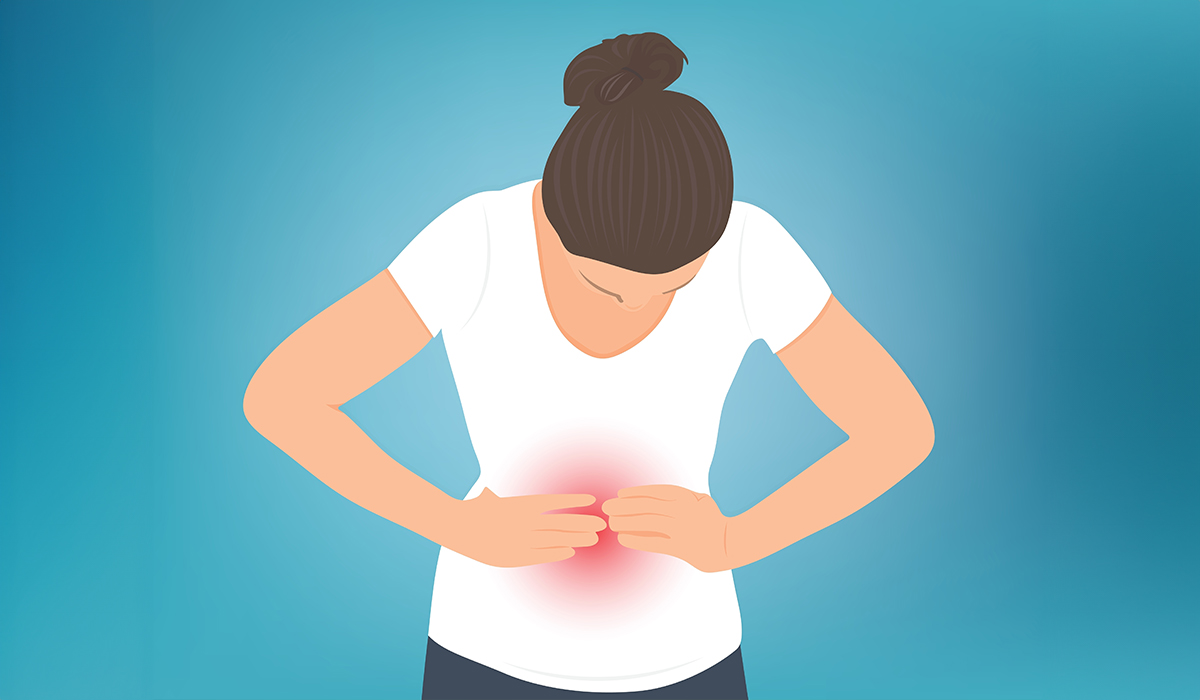
Abdominal pain refers to discomfort or pain felt anywhere in the area between the chest and the pelvis, commonly known… read more »
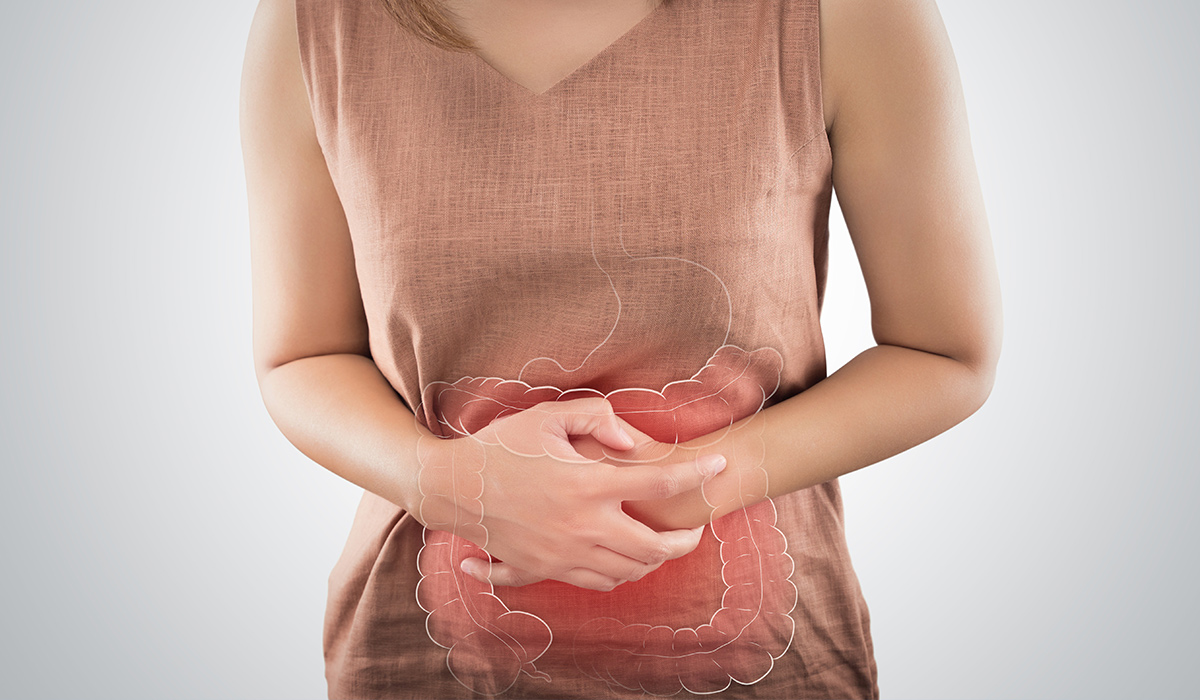
Ulcerative colitis is a chronic inflammatory disease of the large intestine, often manifested by diarrhea with blood. Here is everything… read more »
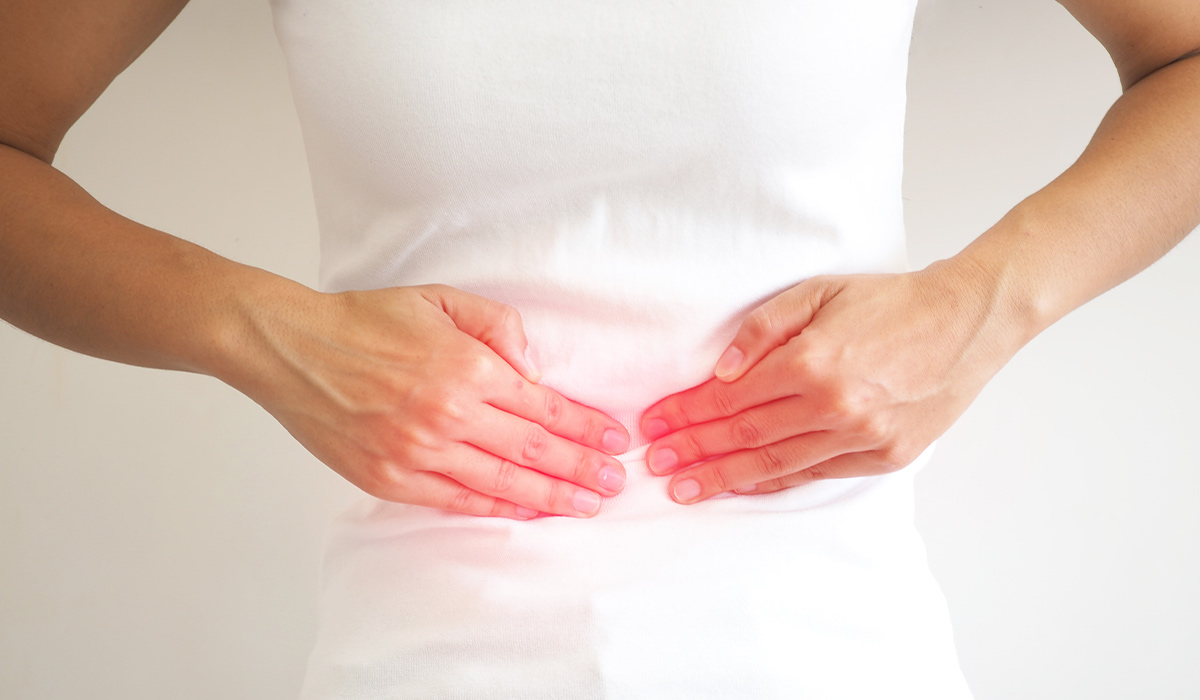
Stomach ulcer symptoms are easily recognizable. However, sometimes the disease is asymptomatic. See how to recognize stomach ulcer disease and… read more »
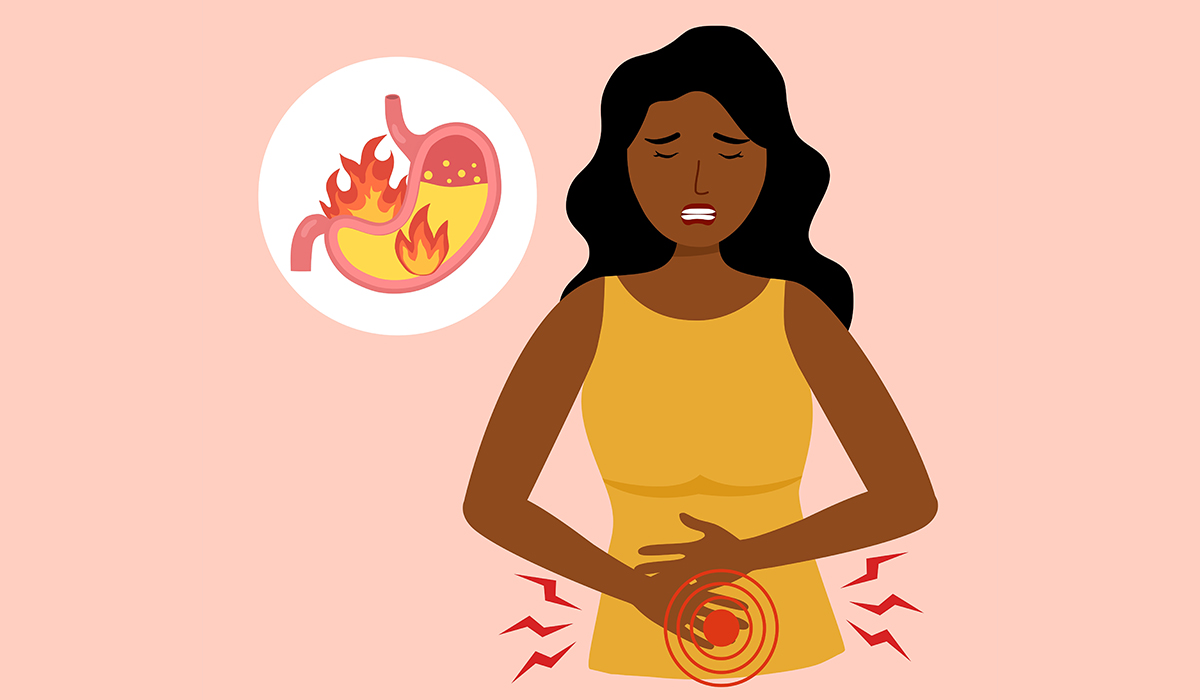
Indigestion is a set of symptoms related to problems with the digestive system. What causes this condition? What is the… read more »
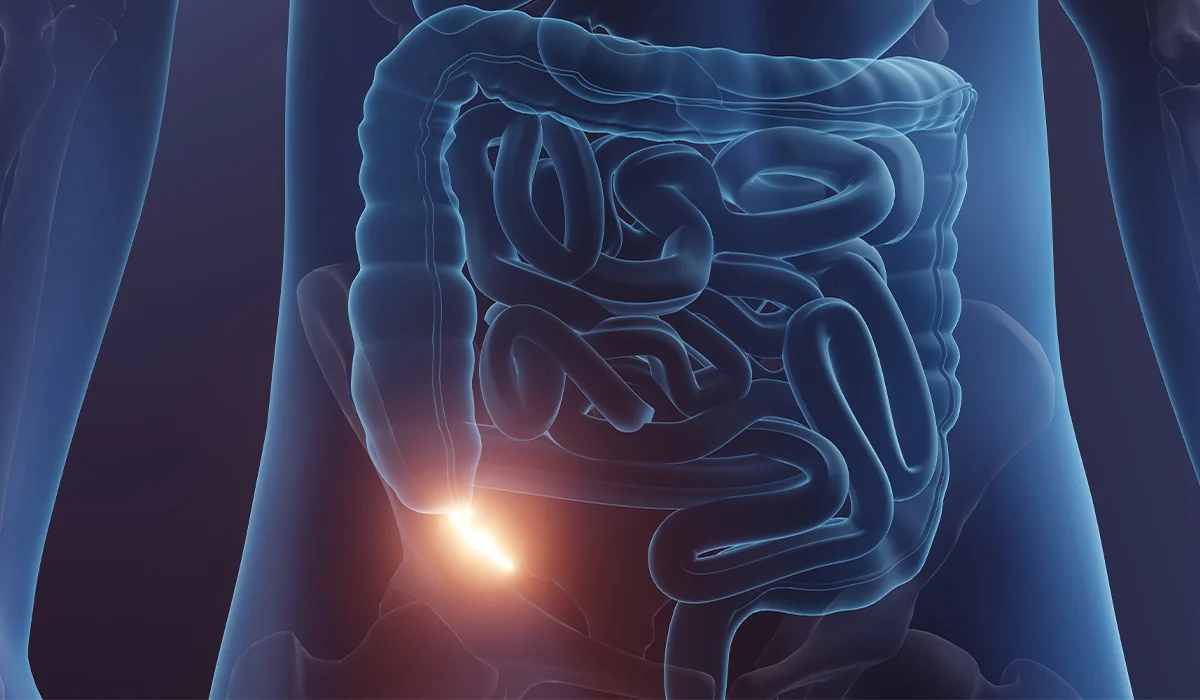
Appendicitis has various forms. Most often it appears as an acute inflammation requiring immediate medical intervention. Learn the most important… read more »
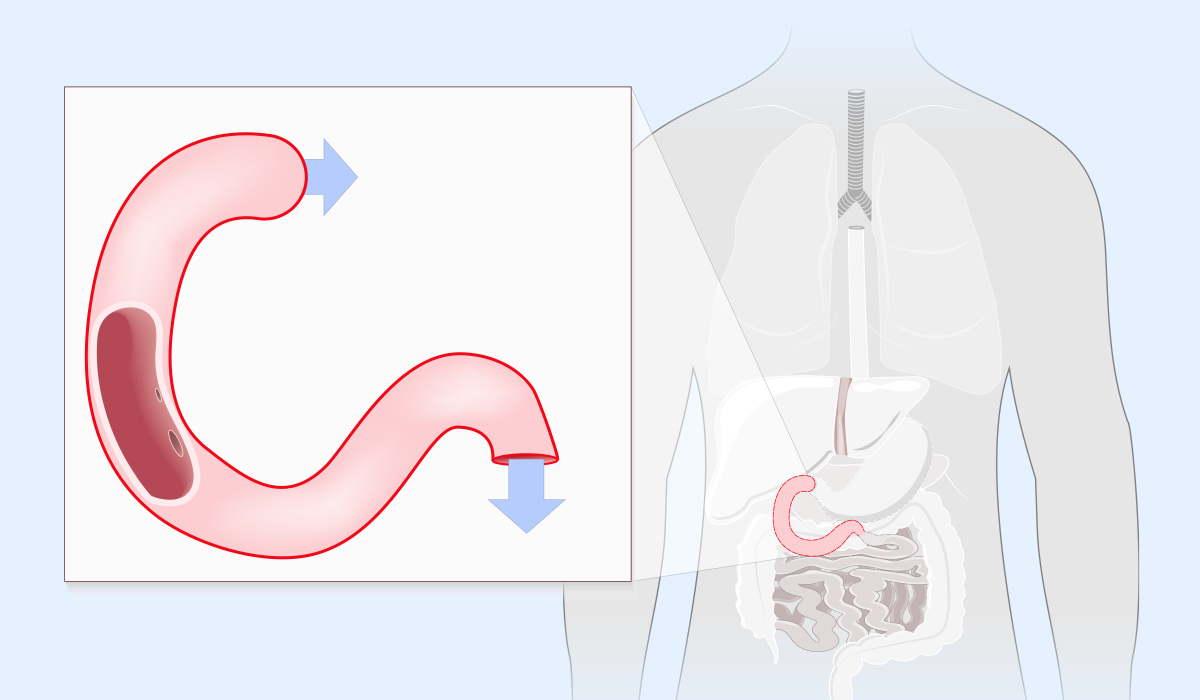
The duodenum is an important organ with useful functions. Find out how to recognize duodenal problems that herald disease. Learn… read more »
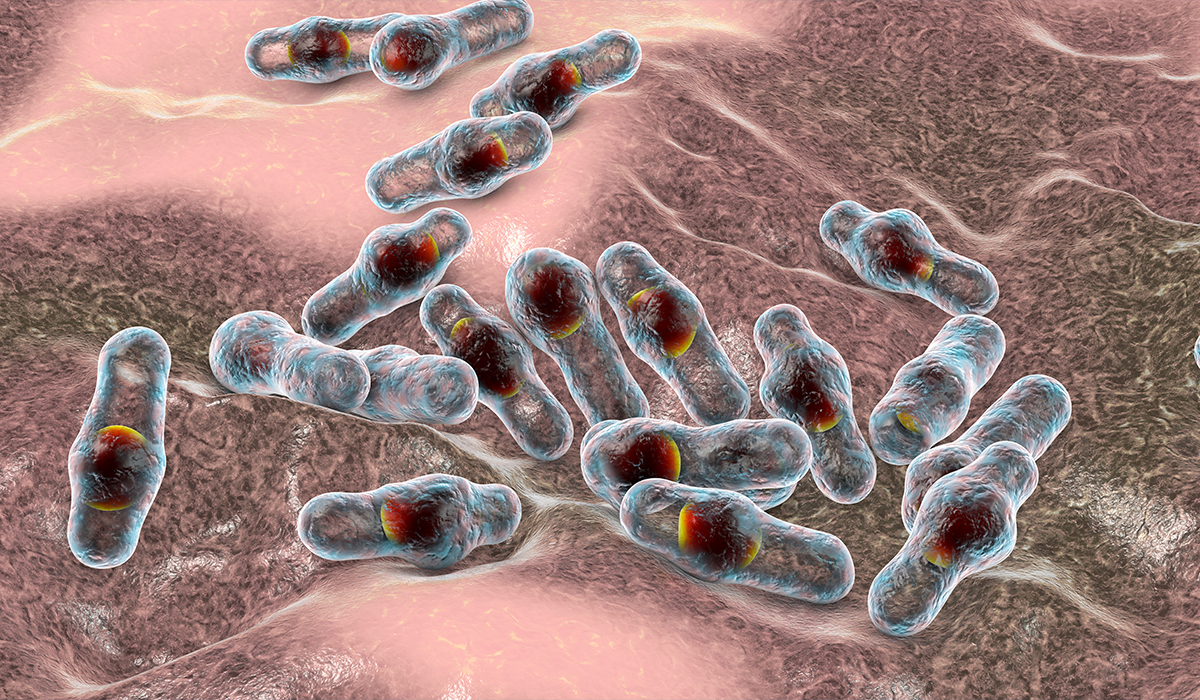
Gangrene is tissue necrosis caused by infection with anaerobic bacteria. How to recognize this disease? What does treatment and prevention… read more »